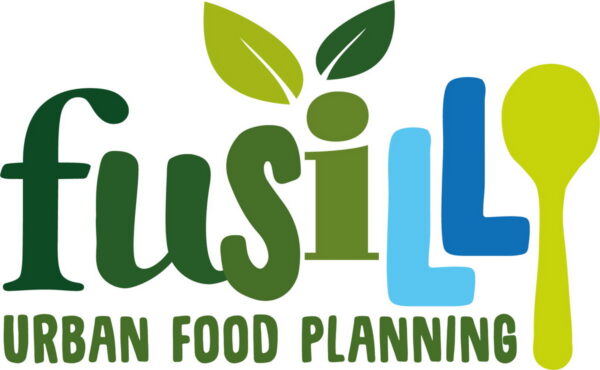Project Title
FUSILLI – An innovative approach to improve the food system and supply chains
 Project goal
Project goal
The key goal of the FUSILLI project is to overcome barriers for developing and implementing integrated, systemic food policies that support transition towards sustainable food systems in urban, peri-urban and nearby rural areas.
Duration
1 January 2021 – 31 December 2024
Description
To achieve this goal, FUSILLI puts 12 cities in a knowledge sharing and learning network to address the challenges of the food system transformation: San Sebastian (Spain), Nilufer-Bursa (Turkey), Oslo (Norway), Kolding (Denmark), Turin (Italy), Castelo Branco (Portugal), Differdange (Luxemburg), Rijeka (Croatia), Kharkiv (Ukraine), Tampere (Finland), Athens (Greece) and Rome (Italy).
These cities will integrate food as a part of their urban-rural agenda and identify and create opportunities to transform food systems into sustainable, healthy and inclusive systems. Via an open knowledge community, cities will be empowered to implement innovative and personalized policies and actions, placing citizens in the heart of the process.
Activities in Rijeka
At the core of FUSILLI are 12 Living Labs in 12 different cities, whose main objective it is to develop urban food plans within their local contexts to achieve an integrated and safe holistic transition towards healthy, sustainable, secure, inclusive and cost-efficient food systems. Rijeka’s Living Lab focuses on citizens, with particular emphasis placed on vulnerable groups such as pensioners and more socially disadvantaged populations and/or groups with certain diseases. Besides creating a wider network of stakeholders in collaboration with local partners with the aim of establishing cooperation, some of the results of Rijeka’s Living Lab will be a creation of nutrition plans for different social groups (focus on involving vulnerable groups), and creation of the curricula and organization of healthy nutrition workshops for various groups of citizens. Furthermore, the main challenges related to excessive food waste and food sharing will be defined, and later on, the Living Lab will create guidelines and instructions that will link excessive food waste to insufficient food donation.
Partners
- Fundacion Cartif (Spain), lead partner
- De Surdurulebilir Enerji Ve Insaat Sanayi Ticaret Limited Sirketi (Turkey)
- Stichting VU (The Netherlands)
- Oslomet – Storbyuniversitetet (Norway)
- Izmir Demokrasi Unversitesi (Turkey)
- Steinbeis Innovation Ggmbh (Germany)
- Acondicionamiento Tarrasense Associacion (Spain)
- University of Syddan (Denmark), Universidad De Valladolid (Spain)
- Tampereen Ammattikorkeakoulu Oy (Finland)
- N. Karazin Kharkiv National University (Ukraine)
- Wings ICT solutions information & communication technologies ike (Greece)
- Civiesco SRL (Italy), Tecnoalimenti S.C.P.A. (Italy)
- Fomento De San Sebastian SA (Spain)
- Nilufer Belediye Baskanligi (Turkey)
- Oslo Kommune (Norway)
- Kolding Kommune (Denmark)
- Comune di Torino (Italy)
- Kharkiv City Council (Ukraine)
- Differdange (Luxembourg)
- Tampereen Kaupunki (Finland)
- City of Rijeka (Croatia)
- Municipio de Castelo Branco (Portugal)
- Dimos Athinaion (Greece)
- Roma Capitale (Italy)
- Eroski S. COOP. (Spain)
- Territoire Naturel Transfrontalier de la Chiers et de l’Alzette (Luxembourg)
- Fondazione della Comunita di Mirafiori ONLUS (Italy)
- EcoFellows Ltd. (Finland)
- Ahlmanin koulun säätiö (Finland)
- Dimos Athinaion Epicheirisi Michanografisis (Greece)
Budget
- Total budget: EUR 12,796,056.50 (100% funded by the EU)
- Budget of the City of Rijeka: EUR 250,875.00
Official website of the project
Financed under the programme
Horizon 2020 – EU Research and Innovation Framework Programme
Contact person for more information
Suzana Belošević Romac
Mayor’s senior adviser – European project specialist
E-mail: suzana.belosevic@rijeka.hr
T: +385 51 209 687


